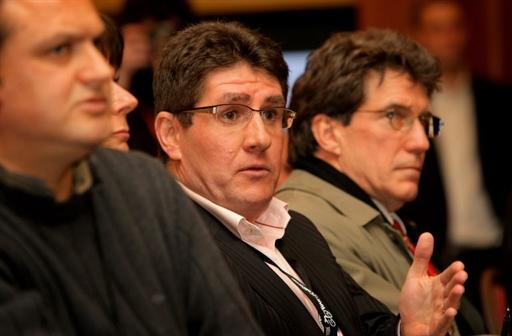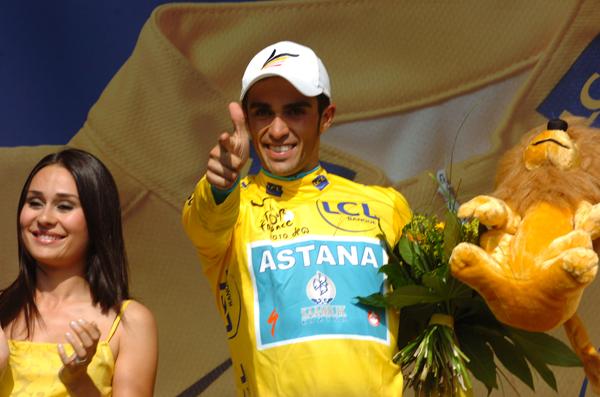Paul Kimmage: 20 years on from Rough Ride
Controversial journalist still highly critical of the UCI


It is 20 years since Paul Kimmage first published 'Rough Ride', his very personal and critical account of his professional racing career and the problems of doping in cycling.
He admitted he dabbled with amphetamines at a post-Tour de France criterium and broke the law of omerta in the peloton by revealing the dirty, dark side of the sport.
Kimmage was accused of spitting in the soup by many of his former teammates for talking about the effects of doping on the sport but the book won the prestigious William Hill Sports Book of the Year in 1990 and launched his career as a sports journalist.
He has since won the Sports Journalists Association Interviewer of the Year prize five times, written three other books and followed numerous other major sports for the Sunday Times newspaper. Yet Rough Ride remains the work he is most proud of.
"It's very gratifying that it's still there and people still read it. It’s surprising because some of it is quite tame considering what went on after it and what is going on now."
"I only appreciated the importance of it for my own career as a journalist a few years later. I went on television in 1996 and was very critical of Olympic champion Michele Smith but if I hadn't written Rough Ride, I'd have left myself wide open to every kind of criticism about being hypocritical."
"Much as I've tried to pretend I've moved on, I still ride my bike and love the sport," he admits.
Get The Leadout Newsletter
The latest race content, interviews, features, reviews and expert buying guides, direct to your inbox!
Kimmage has always been a fierce critic of how cycling is run by the UCI, believing the sports governing body is responsible for many of the current problems.
"When Rough Ride was published in 1990, Pat McQuaid was an ambitious Irish cycling official, making his way through the halls of power and one of my sternest critics at the time. He dismissed the book saying that only the small guys dope. But I recognized that the sport had a real problem with doping and the problem was made worse by the UCI. So the UCI was my target when I sat down to write the book. Twenty years later absolutely nothing has changed. The UCI is still part of the problem, not the solution and I think that’s the saddest aspect of it."
"After the 2006 Tour de France, when Landis was caught, ASO said they weren't having any more of this and wanted zero tolerance. And there was a sense that things would change and the problem would be addressed. Pat even criticised Vinokourov's association with Dr. Ferrari. Then we went from the problem of doping being addressed, to the problem being managed."
"When I say managed, I'd say there's been a distinct change in attitude since Lance Armstrong came back. It's not just me saying it, it's Pierre Bordry, and WADA. Now, were getting select positives, select reading of the biological passport and it’s not good enough. Pat has recently said that doping in the sport is not as bad as it was a few years ago."
Armstrong and many of his former teammates have rubbished Landis' accusations but Kimmage is convinced he is believable.
"He's absolutely believable. Because he's saying the same stuff that Frankie Andreu said, what Betsy Andreu said, that Emma O'Reilly said. This stuff didn’t happen in isolation. He hasn’t said anything we didn’t know, he's given us more detail and painted a bigger picture because he was higher up the food chain. There is no one bigger than this sport. It's too good a sport to not survive."
Kimmage categorically refutes the idea that the sport needs to some how forget about its recent past and move forward.
"It's too easy to say lets all move on folks, when there has been no accountability for the last 20 years. People need to acknowledge their part in it all and there should be no part of them in the sport," he argues.
"I'm losing my patience with the good guys too. They can't have it both ways. We can't change things without upsetting people. I say: 'Stand up and speak out'. If they don’t, they won’t have the respect of the public and things won't change."
Kimmage is also disparaging about Contador's justification for his Clenbuterol positive test at this year's Tour de France.
"His excuse that his meat was contaminated is laughable. It's a fucking insult to our intelligence," he says.
"After the Dauphiné Libéré I couldn't see how he could improve so much in time for the Tour. He wasn't the same guy we'd seen in the past and had a lot to do. But he got there and won the Tour but then tested positive for Clenbuterol..."
"Now I'm not a man of science but for me the key to it was the day of the test. When I found out it was on the second rest day, that was the give away for me."
Two steps forward and one back
"I was extremely pessimistic before Floyd came out but there are some good signs. The rate of change is not what it should be. Maybe were taking two steps forwards and one back but it's going to be a long process. Not going to be easy but it will never be easy," he says.
"I thought my book would change the world. I thought the UCI would address the issues implement controls and thought it would be a great start. But I was a bit naive. My real problems was that I was domestique too easy to blow me way like other people after me but now Floyd is saying things that can't be dismissed and is being investigated by people who are bigger than the sport. We have a chance now."
"I saw a French guy I used to race with a couple of years ago and he said 'there's absolutely nothing wrong with the sport of cycling that a bit of truth and honesty can't sort out,' He's absolutely right. That's the essence to it all."

Stephen is one of the most experienced member of the Cyclingnews team, having reported on professional cycling since 1994. He has been Head of News at Cyclingnews since 2022, before which he held the position of European editor since 2012 and previously worked for Reuters, Shift Active Media, and CyclingWeekly, among other publications.